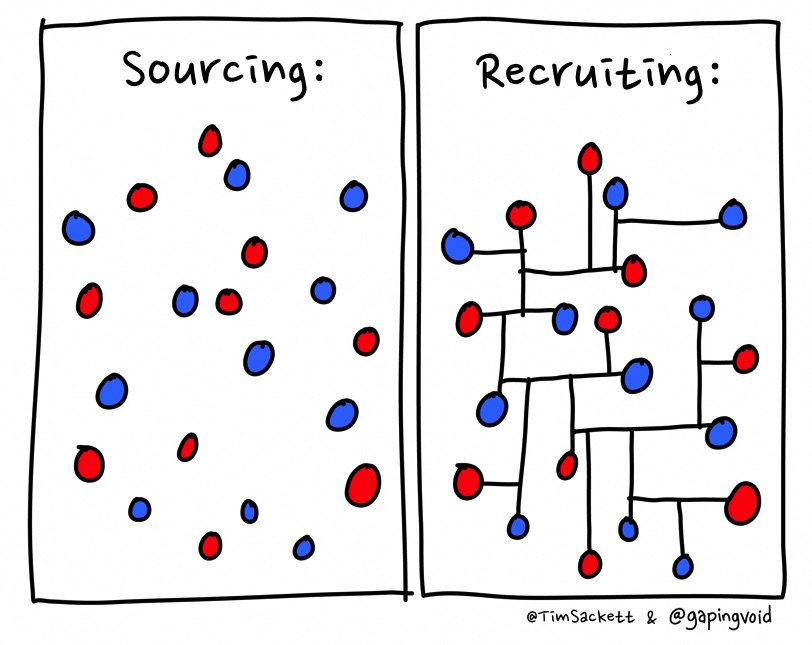Hiring people to work for you directly is probably the single hardest thing you’ll ever have to do as a manager of people. To be fair, most people are average at hiring, some are flat out kill and probably 20% are awful at hiring.
The first sign you suck at hiring is your new hire turnover is an outlier in your organization, your market, or your industry.
So, what constitutes new hire turnover?
I find most organizations actually don’t measure their hiring managers on new hire turnover but use this to judge effectiveness on their talent acquisition team. That’s a complete joke! That is unless you’re allowing your TA team to make hiring decisions! New hire turn is a direct reflection of hiring decisions. Period.
When should you measure new hire turn? Organizations are going to vary on this based on your normal turn cycles and level of the position. Most use 90 days as the cap for new hire turnover. That is safe for most organizations, but you might want to dig into your own numbers to find out what’s best for your own organization. I know orgs that use one year to measure new hire turn and orgs that use 30 days.
How do you help yourself if you suck at hiring?
1. Take yourself out of the process altogether. Most hiring managers won’t do this because their pride won’t allow them. If you consistently have high new hire turn comparable to others, you might consider this, you just have bad internal filters that predispose you to select people who don’t fit your org or management style. Don’t take it personally. I suck at technical stuff. I shop that part of my job off to someone who’s better. You might be an exceptional manager of your business, but you suck at hiring. Shop that out to someone who’s better!
2. Add non-subjective components into your hiring process and follow them 100% of the time. Assessments are scientifically proven to tell you what they’re designed to tell you. If you follow what they’ll tell you, you’ll be much more likely to make consistent hires. If that assessment gives you better hires, then keep following it, or find an assessment that does give you that consistency.
3. Analyze your reasons for each misfire hire. Were there any commonalities in those? What I find is most poor hires stem from a hiring manager who gets stuck on one reason to hire, which has nothing to do with being successful in your environment. Example: “I want high energy people!” But then they work in an environment where they are stuck in a 6X8 foot cube all day. It’s like caging a wild animal!
Numbers don’t lie. If you consistently bomb your new hire turnover metrics, it’s not the hires, it’s you! In the organizations where I’ve seen the best improvement in reducing new hire turnover, it was in organizations where new hire turnover metric results were solely the responsibility of each hiring manager, and nothing to do with talent acquisition.
It’s the 80/20 rule. 80% of most new hire turn is usually coming from around 20% of your hiring managers. Fix those issues and ‘magically’ your new hire turn improves.


